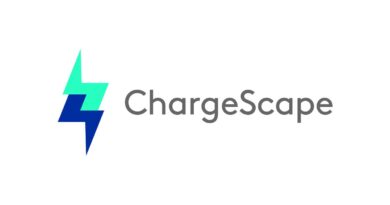Tesla bought over $2 million worth of lidar sensors from Luminar this year
Elon Musk doesn’t like lidar, the laser sensor that powers many companies’ self-driving ambitions. He previously called it a “crutch” and said any company that relies on lidar for its autonomous capabilities was “doomed.”
Well, apparently Tesla is stocking up on crutches.
In its quarterly earnings report released today, Orlando-based lidar manufacturer Luminar disclosed that Tesla was its “largest LiDAR customer in Q1,” comprising more than 10 percent of the company’s revenue for the quarter. That translates to around $2.1 million worth of lidar, based on Luminar’s $21 million in revenue for the quarter.
Tesla is stocking up on crutches
It’s a remarkable reversal for Tesla, which has famously winnowed down over the years the number of sensors it uses to power its advanced driver-assist features like Autopilot and Full Self-Driving — features that Musk has constantly sold as a precursor to a fully autonomous vehicle fleet. Later this year, Tesla is expected to reveal a robotaxi prototype on which Musk is betting the future of his company.
Musk’s lidar allergy was even on display during Tesla’s own quarterly earnings call, in which he boasted about how his vehicles only rely on camera-based vision systems to power their driver-assist features.
“It is obvious that our solution with a relatively low-cost inference computer and standard cameras can achieve self-driving,” Musk said. “No lidars, no radars, ultrasonic. Nothing.”
It’s a remarkable reversal for Tesla
What Tesla is doing with $2.1 million worth of Luminar lidar is anyone’s guess. Luminar spokesperson Milin Mehta declined to comment, and Tesla hasn’t responded officially to any reporters’ queries since 2019.
When I asked Luminar founder and CEO Austin Russell in 2021 specifically about the Tesla deal, he declined to comment, citing “customer confidentiality.” He did note that Luminar sells its older Hydra lidar units to some customers doing “testing, development… data collection, [and] benchmarking.”
Even if Tesla is using Luminar’s lidar to validate its Full Self-Driving feature in preparation for a robotaxi launch, that’s still a lot of lidar. According to Luminar, individual lidar sensors cost around $1,000, including software. Did Tesla buy 2,100 lidars for its vehicles? Maybe! The company is quietly operating an autonomous testing fleet in a number of cities, including San Francisco and Las Vegas. Is it going to retrofit those company-owned vehicles with Luminar’s lidar? If it does, people will notice — just like they noticed the one Model Y in Florida several years ago. We’ll know soon enough whether those vehicles are set to hit the road.
What does seem clear is that Tesla is changing its tune on lidar, even if publicly Musk is still anti-lidar. Eventually, the CEO himself may be forced to swallow his pride and admit that lasers are indeed the sauce.





